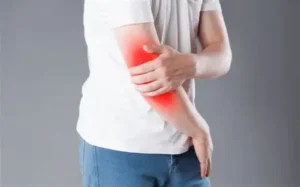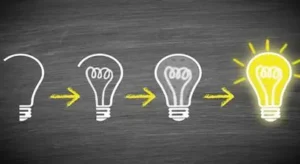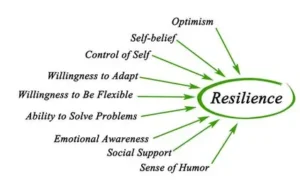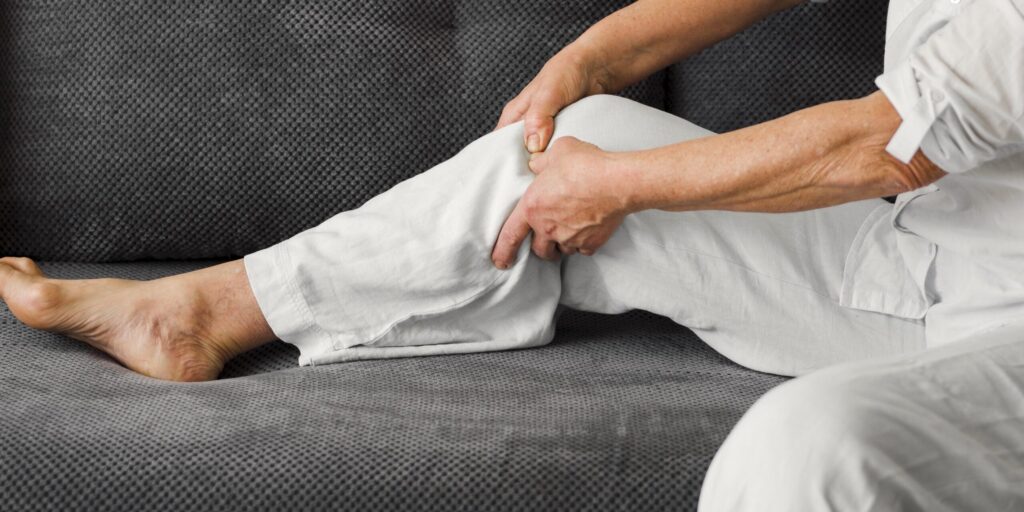Read time 5 minutes
Gratitude First
Each day that I wake up pain-free—or at least better than yesterday—I quietly thank the Universe.
During my school football days, I first encountered muscle cramps. I saw the participants in pain, screaming for help. But now it had become my own experience and one of the most notorious symptoms of all. Living with a rare condition like Isaacs’ Syndrome is a journey defined by both struggle and strength.

For me, every small step toward recovery is a triumph.
What Is Isaacs’ Syndrome?
Isaacs’ Syndrome, also known as Neuromyotonia. It is a rare neurological disorder that affects the peripheral nerves. It leads to hyperexcitability of muscles.
The result?
Unpredictable muscle cramps, stiffness, weakness, and fasciculations (muscle twitching). Unlike the occasional cramp, the pain I experienced here is intense, chronic, and often immobilizing.
Doctors initially thought vitamin deficiencies were responsible for my pain. I was prescribed treatment for low B12, Vitamin D, and bad cholesterol. But my health kept declining.
It wasn’t until I was hospitalized and underwent extensive testing that Isaacs’ Syndrome was diagnosed and so began a new chapter of learning and healing.
Understanding Rare Diseases
The term ‘rare disease’ may sound distant or academic to some, but for those of us living with one, it’s personal. It means limited research, experimental treatments, and few answers. Isaacs’ Syndrome falls under this category. It makes it a challenge to manage and even harder to explain.
Sadly, Isaacs’ was only one of several diagnoses I received. I also faced:
- Lyme disease: A tick-borne bacterial infection that complicated my immune responses.
- Glaucoma : An eye disease that slowly damages optic nerves.
- Membranous Glomerulonephritis : A progressive kidney disorder that disrupted my metabolism.
- Diabetes, Blood Pressure issues & Eczema
- Gastrointestinal challenges like Irritable Bowel Syndrome (IBS), excess stomach acid, and enzyme imbalances.
- Frozen Shoulder and joint pain caused by inflammation and muscle tension.
Each condition layered onto the other, making treatment difficult. Every day’s life was incredibly unpredictable.
Muscle Cramps: The Unseen Agony

One of the worst symptoms I still deal with is muscle cramps.
The pain is sharp, sudden, and often strikes without warning. It mostly is in my calf muscles, thighs, and lower legs. It’s a force that stops me mid-movement, sometimes rendering me immobile for minutes. The only way to describe it is excruciating.
Difference Between Muscle Cramps and Spasms
| Term | Description | Severity | Location |
|---|---|---|---|
| Muscle Cramp | Sudden contraction with sharp pain | High | Most commonly legs |
| Muscle Spasm | Involuntary muscle movement | Moderate | Any muscle group |
Muscle cramps tend to be more painful and frequent. It often triggered by dehydration, mineral imbalance, or overuse.
Diagnosing the Cause of My Muscle Cramps

Through multiple consultations and lab tests, several causes were identified:
- Side effects from medications
- Inflammation and chronic diseases (esp. kidney-related)
- Nerve compression and restricted blood flow
- Magnesium and Vitamin B12 deficiencies
- Dehydration and cold weather exposure
One surprising discovery?
Cold drafts and breezy environments worsen my symptoms. So, I make lifestyle changes like wearing thermal socks, even to bed. It is better to stay covered up during winters.
Treatment That Worked (and Some That Didn’t)

Finding effective treatment for Isaacs’ Syndrome? And its symptoms? wasn’t a straight path.
I tried a mix of conventional and alternative approaches, each offering small victories or tough side effects.
Western Medicine
- Steroids
- Immunosuppressants
- Muscle relaxants
- IVIG (Intravenous immunoglobulin)
- Plasmapheresis: A blood filtering process that helped reduce symptom flare-ups.
Although these gave short-term relief, long-term use started showing side effects. It includes new conditions like diabetes and high blood pressure.
Holistic and Alternative Therapies
To counter the growing side effects, I switched focus toward holistic healing, which included:
- Ayurveda (using Balaaswagandhaadi Tailam gave relief) and Homeopathy
- Meditation and Yogic practices
- Ayush treatments that addressed both my cramps and systemic issues
- Electrolyte balancing supplements
Diet Adjustments
- Increased magnesium-rich foods like nuts, seeds, and leafy greens
- Vitamin D supplements for nerve and muscle health
- Probiotics to regulate gut enzymes and reduce IBS symptoms
- Electrolytes from time to time
Food became a form of medicine, each meal customized to ease digestion, reduce cramps, and support wellness.
What I Learned Through This Journey

Muscles certainly have a mind of their own. It was beneficial to indulge into various relaxation techniques.
Every challenge left behind a valuable life lesson: My Key Takeaways:
1, Trust my body:
Muscle cramps taught me to listen carefully and rest when needed
2. Stick to prescriptions:
Overmedicating can cause harm. I avoided unnecessary pills and trusted my doctor’s advice
3. Doctor communication matters:
Keeping all specialists aligned helped me build a complete healing plan
4. Avoid self-diagnosis:
When in doubt, I asked or consulted a trusted physician or their team instead of guessing
5. Tracked my progress:
Maintained medical records and note symptoms. It helped spot patterns and supports doctor discussions
6. Be patient with healing:
Healing, whether physical, emotional, or spiritual, wasn’t a sprint. It unfolded in layers and often in ways I didn’t expect. The toughest part was trusting the process even when there’s no clear sign that it’s working. But every quiet step forward counted.
7. Avoid comparison:
Everyone’s health story is different. I recognized my limits and honored them.
8. Seek help unapologetically:
Support groups and online communities helped me feel supported
Resilience Isn’t Born—It’s Built

If you’re reading this and facing your own rare race, know this, that:
Resilience is earned through small, daily steps.
There were days I didn’t want to get out of bed, nights I couldn’t sleep, and weeks when I questioned my strength. But here I am, writing this to help others rise.
Your journey may be different, but my strength lied in showing up and doing my best.
Final Thoughts and Encouragement
Living with Isaacs’ Syndrome and chronic muscle cramps is no easy feat.
But with the right combination of medical care, emotional support, and lifestyle changes, life doesn’t have to be defined by pain.
Life can be reframed as an ongoing evolution. It is defined as a process that teaches us about strength, gratitude, and healing.
My advice?
Stay curious, ask for help, and never lose hope. You are not alone. And your story, just like mine, deserves to be heard.
DISCLAIMER
The views expressed in this article are the author’s own and do not represent any kind of medical advice.


